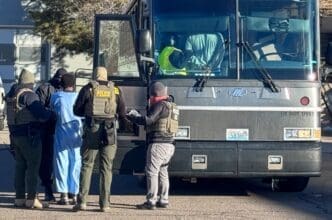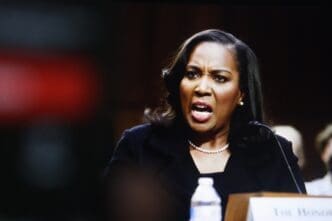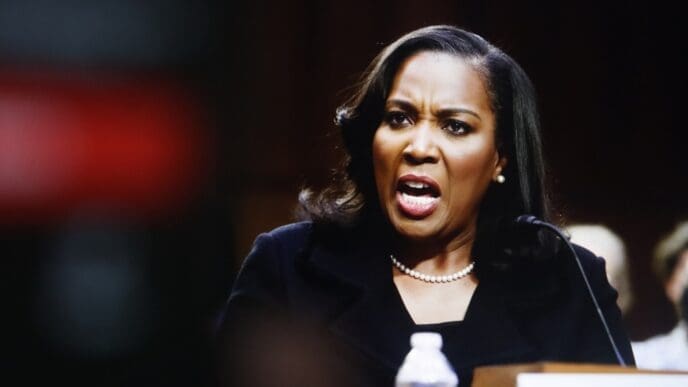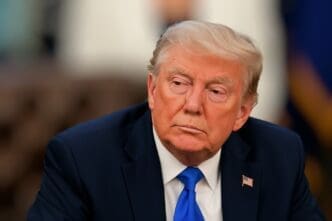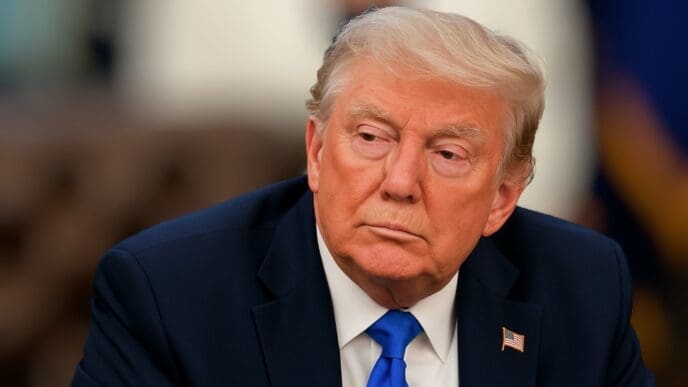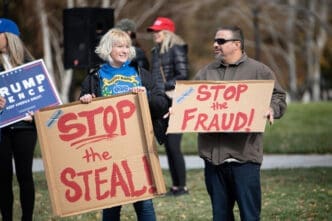WASHINGTON – President Donald Trump on Monday pardoned nearly everyone criminally charged with participating in the Jan. 6, 2021, attack on the U.S. Capitol, in a show of solidarity with supporters who stormed the seat of American power in his name.
The far-reaching action also cuts short the sentences of 14 members of the far-right Proud Boys and Oath Keepers organizations, including some who were convicted of seditious conspiracy.
The document also directs the U.S. attorney general to drop all pending cases related to the riot.
“What they’ve done to these people is outrageous,” Trump, a Republican, told reporters in the Oval Office.
The moves fulfill a campaign promise by Trump to aid supporters who were charged and in many cases imprisoned for crimes committed during the riot, a failed attempt to stop the congressional certification of Democrat Joe Biden’s 2020 election victory.
A lawyer for the former leader of the far-right Proud Boys group, Enrique Tarrio, said he expected his client to be released from federal prison.
Some federal inmates serving Jan. 6-related sentences could be released as soon as Monday, a Bureau of Prisons spokesperson said, adding that the bureau was still waiting on official action by Trump.
Thousands descended on the Capitol in 2021 following an incendiary speech by Trump, tearing down barricades, fighting police and sending lawmakers and Trump’s vice president Mike Pence running for their lives as they met to formalize the election result.
The lawyer for Tarrio, Nayib Hassan, said he was not sure if Tarrio would receive a full pardon or a commutation cutting short his sentence. His mother also posted on X that Tarrio would be released.
Tarrio is serving a 22-year sentence, the longest of anyone criminally charged in the riot, for seditious conspiracy. He was found guilty of plotting to violently oppose the transfer of power after the 2020 election.
A lawyer for Tarrio’s co-defendant, Joe Biggs, said he was also told by an intermediary that Biggs is being processed for release. Biggs, who held a senior post in the Proud Boys, was also convicted of seditious conspiracy and sentenced to 17 years in prison.
PARDONS, COMMUTATIONS
Prosecutors accused Tarrio, Biggs and the rest of the Proud Boys leadership of mobilizing for violence after Trump lost the 2020 election and playing a leading role in instigating the breach of the Capitol.
More than 600 people were charged with assaulting or obstructing police during the riot, according to U.S. Justice Department figures.
The presidential clemency power includes the ability to remove legal consequences of a conviction through a pardon or to cut short or modify a sentence through a commutation.
The U.S. Constitution gives presidents broad pardon power and there is no legal mechanism for challenging a presidential pardon.
Key Trump allies in recent weeks said they did not expect pardons of people who engaged in violence.
“The president does not like people who abuse police officers,” Trump’s attorney general nominee Pam Bondi said last week during her Senate confirmation hearing.
Likewise, Vice President JD Vance in an interview with Fox News earlier this month said, “If you committed violence on that day, obviously you shouldn’t be pardoned.”
AN EXTRAORDINARY COMEBACK
Trump’s decision ends what officials have called the largest investigation in the Justice Department’s history. The FBI and federal prosecutors spent the last four years tracking down and charging people they said participated in a violent attempt to stop the transfer of power after Trump lost the 2020 election.
Trump’s grants of clemency are another indication of his extraordinary political comeback. In the days following the riot, Trump was condemned by his fellow Republicans, banished from prominent social media sites and impeached by the House of Representatives, though he was later acquitted by the Senate.
Trump also faced criminal charges over his efforts to undo his 2020 election loss, a case that sought to hold him responsible for the violence at the Capitol. The charges were dropped after Trump won last year’s election.
Charges against Capitol riot defendants ranged from low-level trespassing offenses to seditious conspiracy against the leaders of the far-right Proud Boys and Oath Keepers groups, who were found to have plotted to use violence to stop the transfer of power.
More than 1,000 people pleaded guilty to federal charges, including 327 who have admitted to felonies and 682 who committed only misdemeanor offenses. Another 221 have been found guilty following a trial, according to Justice Department figures.
About 1,100 have been sentenced, including 667 defendants who were sent to prison, according to Justice Department data.



